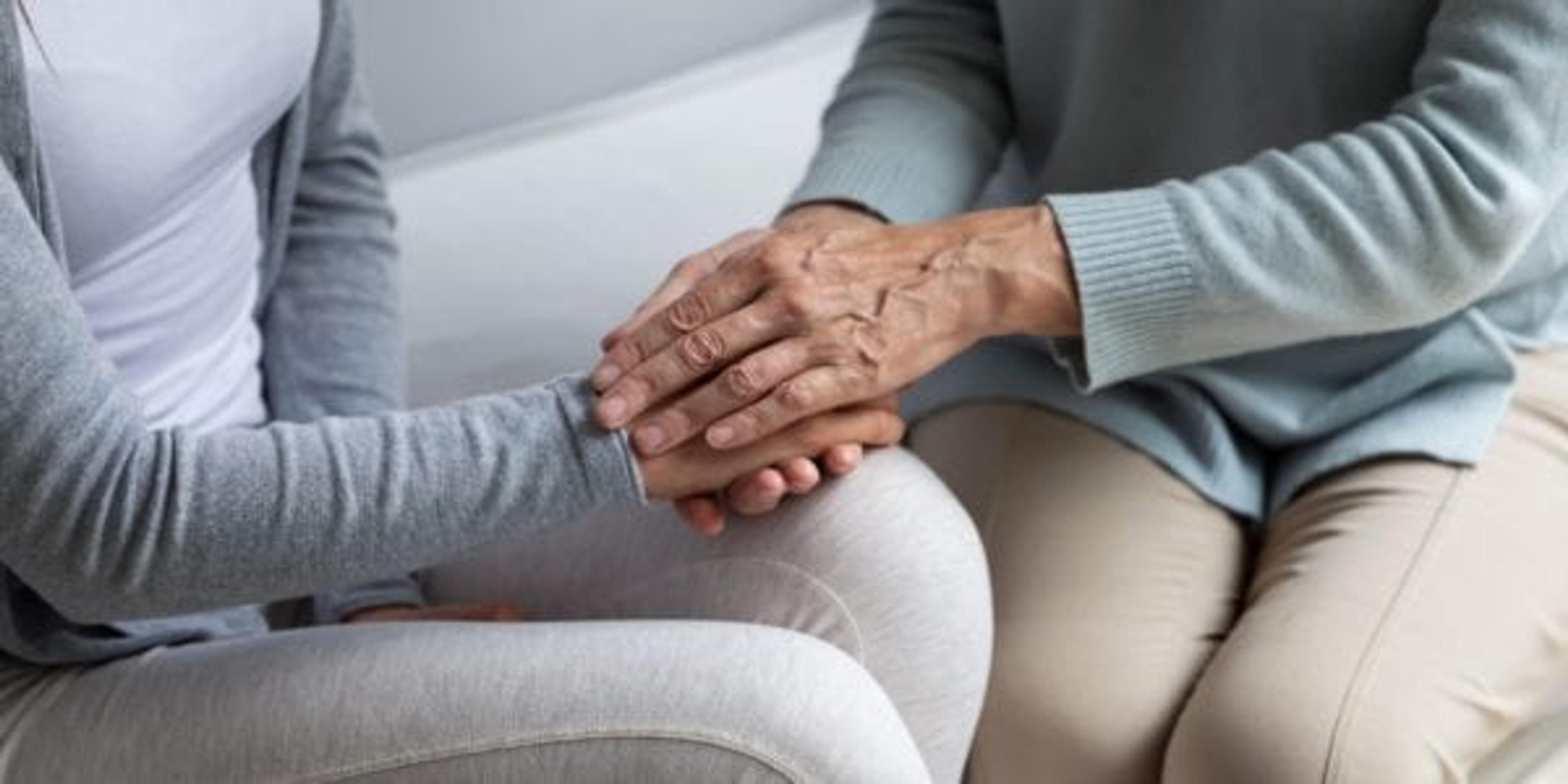Caregiving During Coronavirus
Guest Blogger
| 5 min read

Stay-home orders due to COVID-19 probably have us all feeling a little isolated—and a lot anxious.
The virus has added a new wrinkle to what, for many caregivers, is an already isolating and overwhelming situation.
Colleen, 57, from Howell, has been caring for her mom, Mary Lou for the past nine years. Mary Lou has mid-stage Alzheimer’s, and has been living with Colleen and her husband, Ken, for the past three years.
Before the pandemic, a local Adult Day center was a lifeline. It provided Colleen with a break from her caregiving duties and gave Mary Lou important social interactions. Now temporarily closed, Colleen finds herself caring for her mother without the help, support and daily break she’d grown to depend on. She shares how she’s coping with all these changes and gives some tips for other caregivers.
Expect changes in behavior
Colleen says that without their old routine, Mary Lou is exhibiting more emotional outbursts and “sundowning” behavior (when a person with dementia becomes more confused or agitated during the evening or at night). Mary Lou is also finding it frightening to be alone—even for a few minutes. “She needs to be in the same room with me all the time,” says Colleen. “That can be hard. It can be exhausting.”
Jeannine Magowan, program manager for the Area Agency on Aging 1-B’s health and wellness programs and a facilitator for the Agency’s Powerful Tools for Caregivers education classes, is not surprised. “This is a time that is hard for all of us,” she says. “People with a form of dementia can have trouble expressing those feelings in ways that they used to. It might come out in the form of new fears, increased confusion or increased agitation.” Magowan says that just knowing where those behaviors come from might help caregivers cope. However, if caregivers are concerned about their loved one’s well-being, they should not be afraid to reach out to their health care provider for feedback.
Try to establish a routine
“Routine is extremely important for people with Alzheimer’s,” explains Colleen. She makes sure meals are scheduled, counts on help from her husband and has purchased adult coloring books and puzzles that can keep Mary Lou occupied, while giving her a break. They’re also taking regular walks to get outside.
Magowan seconds Colleen’s routine tip, and suggests building a day that includes exercise, enough sleep and activities that help you keep in touch with others. “I know it’s hard, but if possible, schedule in some time for yourself,” Magowan said.
Be forgiving and take care of yourself
Colleen, who has some chronic health conditions, says caring for her mom 12 hours each day leaves her exhausted. “It’s been hard,” she says. “I find myself saying something and wondering why I let that come out of my mouth.” She reminds herself that she’s doing the best she can.
Caregivers tend to carry around a lot of guilt, Magowan explained. “They worry that they aren’t doing everything correctly. They worry they aren’t doing enough. Most people are doing the best they can. You cannot expect perfection from yourself.”
Magowan emphasizes that finding a way to take care of yourself is critical. She suggests making a list of self-care activities and regularly trying to check off one or two things. It can be as simple as calling or emailing a friend. Support is available, even while practicing social distancing and isolating. She recommends:
- Alzheimer’s Association: 800-272-3900
Free, virtual dial-in support groups for those caring with someone with dementia.
- Virtual classes and activities that both family caregivers and those living with dementia or Alzheimer’s may enjoy. Visit their Facebook page to learn more.
- Well Spouse
Telephone support groups for those caring for a spouse.
Get help if you need it
Colleen has always struggled with anxiety but says the current situation has exacerbated it. “I would say that I am feeling (anxiety) with more intensity,” she said. One of her fears is that one of them may get the virus.
Magowan says it’s important for caregivers to pay attention to their mental health and reach out if they’re overwhelmed. “This is especially true now,” she said. “Your mental health is just as critical as other aspects of your health, and your physician can help direct you to mental health resources or make other recommendations.”
Additional resources
If you’re looking for more resources or help for older adults or family caregivers during the COVID-19 pandemic, reach out to your local Area Agency on Aging. There are 16 in the state of Michigan. You can find the one serving your area using the U.S. Administration on Aging’s Eldercare Locator tool. The Area Agency on Aging 1-B has also created a web page with important resources during the pandemic specific to the six-county region of southeast Michigan they serve.
This blog post is courtesy of the Area Agency on Aging 1-B, a nonprofit responsible for serving more than 700,000 people 60 and older in Livingston, Macomb, Monroe, Oakland, St. Clair and Washtenaw counties. By providing community-based services from meals to in-home care, the Area Agency on Aging 1-B enables older adults and adults with disabilities to maintain their health and independence in their homes. More information is available by calling the AAA 1-B Information and Assistance Telephone line at (800) 852-7795 or visiting www.aaa1b.org. We’ll be partnering with AAA 1-B on our Midlife Map series. Their experts will provide monthly tips geared toward the “sandwich generation” – people in midlife facing the complicated juggling act of caring for children and older parents at the same time.
Want more content geared toward the realities and joys of mid-life? Subscribe to our Midlife Map series here:
Please leave this field empty Interested in more of this content? We'll send related updates right to your inbox. Email Address *
Enjoy your new subscription!
If you liked this post, you might also enjoy:
Photo: Fizkes





